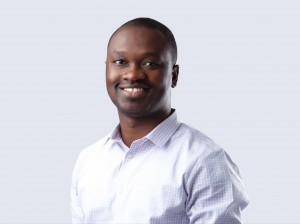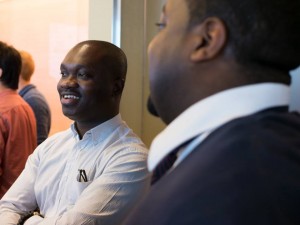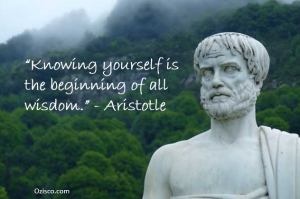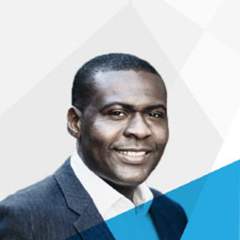
Jeffrey, CEO of GrowingStartup.com, beams with charisma and passion. A conversation with him is highly engaging and inspiring. I was fortunate to cross paths with him during a networking event organized by the African Technology Foundation at the Google Campus in Mountain View. The event featured talented entrepreneurs from all over Africa and the diaspora pitching their ideas to members of the Black Google Network and other invited guests. After conversing with Jeffrey for a few minutes, I knew I had to feature him on the F.I.V.E Questions project.
1. Briefly describe your background and how you got started. What is the most exciting or rewarding aspect of what you do? What could make it even more exciting or rewarding?
I grew up in Ghana for most of my life. Both of my parents are entrepreneurs so I grew up in a home where the drive to school was peppered with pep talks on how to spot business opportunities. One time my mom came home with some doughnuts and proceeded to say “I bought them for this amount, you should take them to school and sell to your mates.” I was too shy at the time but I wish I’d started my mini-doughnut business at the time.
After high school I worked as a business to business salesman on the streets of London. The compensation was only commission based so I didn’t get paid if I didn’t sell anything after twelve hours of work. That taught me that products are a commodity in most markets but the ability to sell is what defines the success of many entrepreneurs.
I started GrowingStartup.com because I wanted to help entrepreneurs make better decisions and to give them a proven system that attracts customers and increases sales.
The biggest problem for struggling business owners is wisdom. The ability to know and do what is right consistently is what I provide through our apps and content. Within the next decade, we’ll be the destination fight for business owners who want to know how to attract paying customers and boost sales.
What I love about what I do at GrowingStartup.com is that I get to help people turn their ideas into profits. It’s a calling for me almost the same way a pastor sees his ministry. Having hundreds of millions of aspiring and early stage entrepreneurs using our products and services to start and grow profitable businesses would make it even more exciting. We plan on creating other forms of content such as video games and TV shows for entrepreneurs so that’s something else I’m really looking forward to doing.
2. Flash back and then fast forward to the present, what has surprised you the most about the success in your business? What advice do you have for others looking to take a similar path? Is there something you could have done differently to get to where you are quicker?
What has surprised me is the effectiveness of content marketing. Even while I was working as copywriter for an advertising agency, I started out cold calling small businesses that I knew I could help with branding and web design services. As a matter of fact I did not even have a company name or website at the time. I just went and pitched the value of my services and I had over 90 percent conversion rates. What happened afterwards was that I realized consulting did not scale and what many small businesses needed was a system to increase sales and multiply their conversion rates. I started blogging about marketing and sales and that brought in clients from all over the world.
My advice for people who have a job but would want to start their own businesses would be to focus on a need or problem that they can solve better, cheaper or faster than anyone else.
My success would have been accelerated if I had learnt how to market and sell better at the beginning. The second thing is faith. I have learnt that what separates the top performers in business from the others is a mixture of boldness and understanding. Those two pillars are the keys to exponential growth.
3. What is your unfair advantage? What would your colleagues or clients say are the main reasons that make working with you rewarding?
My unfair advantage would be two-fold and that is having the boldness of faith and using love as my business strategy. By God’s grace I don’t believe in impossibilities like most people do. I also know that the less excuses you have the easier it is do what’s necessary.
With regards to love I believe the easiest way to innovate and get paid more is by giving more value to your customers than anyone else in your market. People always buy things at a discounted price to the real value so giving people magnitudes more than they are paying for is good.
I reckon that’s what people will say is rewarding about working with me. For example, the last time I sold an online course, I noticed one of the students needed help. I conducted special consulting sessions for free just to help her. She’s now a lifetime client.
4. Reflect on all of the key sacrifices and trade-offs you’ve had to make to get to where you are today. Which of these would you say was the most pivotal and why?
The most pivotal sacrifice would be how much time I spend reading and imbibing knowledge. Many of the advice out there is tactical. There are a lot of do’s and don’ts that don’t produce results. I found out that understanding how to create the best products and most importantly how to get the right people to buy them makes up for the 50 steps to success that we see and hear all around us.
5. What is the best piece of actionable advice that you’ve received that continues to be source of inspiration in good times and challenging times?
It’s biblical. 1 Corinthians 13:4-8 (amplified version) talks about how to use love in daily life. It’s not the emotional or sexual high the movies paint it out to be. In my business we make it a point to out-give (and out-love) everyone else. That’s invaluable advice.
Love endures long and is patient and kind; love never is envious nor boils over with jealousy, is not boastful or vainglorious, does not display itself haughtily.5 It is not conceited (arrogant and inflated with pride); it is not rude (unmannerly) and does not act unbecomingly. Love (God’s love in us) does not insist on its own rights or its own way, for it is not self-seeking; it is not touchy or fretful or resentful; it takes no account of the evil done to it [it pays no attention to a suffered wrong].6 It does not rejoice at injustice and unrighteousness, but rejoices when right and truth prevail.7 Love bears up under anything and everything that comes, is ever ready to believe the best of every person, its hopes are fadeless under all circumstances, and it endures everything [without weakening].8 Love never fails [never fades out or becomes obsolete or comes to an end]. As for prophecy (the gift of interpreting the divine will and purpose), it will be fulfilled and pass away; as for tongues, they will be destroyed and cease; as for knowledge, it will pass away [it will lose its value and be superseded by truth]. Source: https://www.bible.com/bible/8/1co.13.4-8.amp
Jeffrey Manu’s Bio
 Jeffrey A. Manu is a Marketing Strategist and the Founder of Growingstartup.com, a media and technology company. At Growingstartup.com, he builds technology and content that help aspiring and early stage entrepreneurs to start and grow profitable startups.
Jeffrey A. Manu is a Marketing Strategist and the Founder of Growingstartup.com, a media and technology company. At Growingstartup.com, he builds technology and content that help aspiring and early stage entrepreneurs to start and grow profitable startups.
He enjoys reading business books, biographies, Christian books and watching movies and TV shows. He particularly like shows like The Profit and Billions. Above all else, spending time with my wife is his greatest pleasure. In addition to this, he enjoys playing basketball and reassures himself that he could have played in the NBA league 
Connect with Jeffrey on LinkedIn @Jeffrey Manu and Twitter @JeffreyManu




